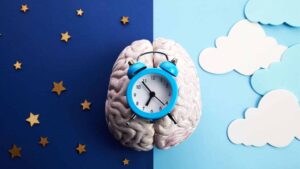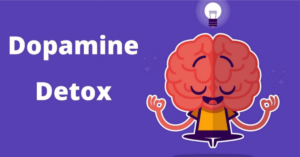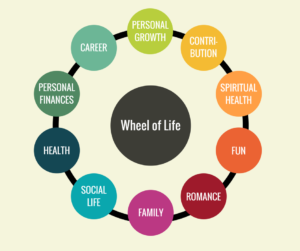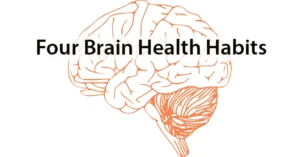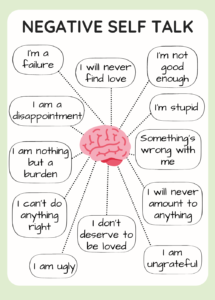The human body operates on a finely tuned internal clock...
The Science of the Body Clock: How it can Revolutionize your Sleep and Health
The human body operates on a finely tuned internal clock known as the circadian rhythm, orchestrating a symphony of physiological process that repeat roughly every 24 hours. This intrinsic timekeeper, governed by a complex interplay of molecular, neural and environmental factors, holds profound implications for sleep, mental health and overall well-being. Delving into the science of the body clock unveils a fascinating landscape of neurobiological mechanisms, clinical applications and therapeutic opportunities for optimizing sleep and mental health outcomes.
Sleep, often regarded as cornerstone of well-being, plays a pivotal role in regulating physiological functions and nurturing mental health. However, amidst the hustle and bustle of modern life, the question remains: How much sleep do we truly need? Delving into the physiological underpinnings and neuropsychiatric implications of sleep duration unveils a complex interplay of biological rhythms, cognitive processes and mental health outcomes.
Physiological Foundations of Sleep:
The quest for optimal sleep duration begins with understanding the intricacies of the sleep-wake cycle and its neurobiological substrates. The brain’s sleep-wake regulatory system, governed by the interaction between the suprachiasma nucleus (SCN) in the hypothalamus and neurotransmitter system such as adenosine, serotonin, and melatonin, orchestrates the timing and quality of sleep. Sleep architecture, characterized by distinct stages of non-rapid movement (NREM) and rapid eye movement (REM) sleep, reflects the dynamic interplay of neural circuits underlying sleep regulation and consolidation of memory and emotion processing.
Neuropsychiatric Perspectives on Sleep Duration:
Emerging evidence suggests a bidirectional relationship between sleep duration and mental health outcomes. Chronic sleep deprivation or prolonged sleep disturbances are associated with an increased risk of mood disorders, such as depression and anxiety, as well as cognitive impairment and reduced resilience to stress conversely, excessive sleep duration and hypersomnia may signal underlying psychiatric conditions, including bipolar disorder, depression, or sleep disorders such as obstructive sleep apnea (OSA). Understanding individual differences in sleep need and patterns is essential for tailoring interventions to promote optimal mental health outcomes.
Understanding the Circadian Rhythm:
At heart of the circadian system lies the suprachiasmatic nucleus (SCN) in the hypothalamus, serving as the master pacemaker orchestrating circadian rhythm throughout the body. The SCN receives input from light-sensitive retinal cells, synchronizing internal biological rhythms with external light-dark cycles. Molecular clock genes, including period (PER) and cryptochrome (CRY), regulate the rhythmic expression of proteins in a feedback loop, maintaining the oscillatory nature of circadian rhythms.
Physiological Implications:
The circadian rhythm exerts pervasive effects on virtually every aspects of physiology, from sleep-wake cycles to hormone secretion, metabolism and immune function. Disruptions to the circadian system, such as shift work, jet lag or irregular sleep schedules, can perturb these finely orchestrated rhythms, contributing to sleep disturbances, mood disorders, and metabolic dysregulation. Chronobiological research has elucidated the intricate connections between circadian disruption and a myriad of health conditions, underscoring the importance of maintaining a synchronized body clock for optimal health outcomes.
Impact on Mental Health:
Emerging evidence implicates circadian dysregulation in the pathophysiology of various neuropsychiatric disorders, including depression, bipolar disorder and schizophrenia. Dysfunctional circadian rhythms are associated with alterations in mood, cognition and neuroplasticity, highlighting the bidirectional relationship between circadian disruption and mental health. Chronotherapeutic interventions, such as light therapy, melatonin supplementation and timed administration of medications, hold promise for mitigating circadian disturbances and improving clinical outcomes in psychiatric populations.
Clinical Applications:
In clinical settings, understanding the science of the body clock is instrumental for diagnosing and treating sleeping disorders, mood disorders and other psychiatric conditions with circadian components. Chronotype assessment, sleep-wake diaries, actigraphy and polysomnography enable clinicians to evaluate circadian rhythms and tailored interventions accordingly. Cognitive behavioral therapy for insomnia (CBT-I), sleep hygiene education, and circadian rhythm synchronization strategies form cornerstone of non-pharmacological approaches to sleep disorders, emphasizing the importance of aligning sleep schedules with the natural circadian rhythm.
Therapeutic opportunities:
Innovations in circadian biology offer novel therapeutic avenues for enhancing sleep quality and promoting mental health. Chrono-pharmacology, the science of timing medications to align with circadian rhythms, optimizes drug efficacy while minimizing side effects. Transcranial magnetic stimulation (TMS) targeted at the dorsolateral prefrontal cortex (DLPFC) shows promise for modulating circadian rhythms and improving mood regulation in depression. Additionally, lifestyle interventions, such as regular exercise, exposure to natural light and adherence to consistent sleep schedules, support circadian health and foster resilience against circadian disruptions.

